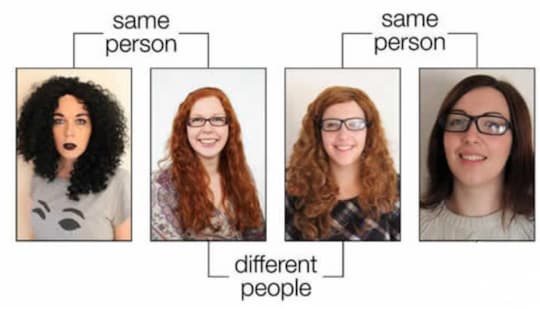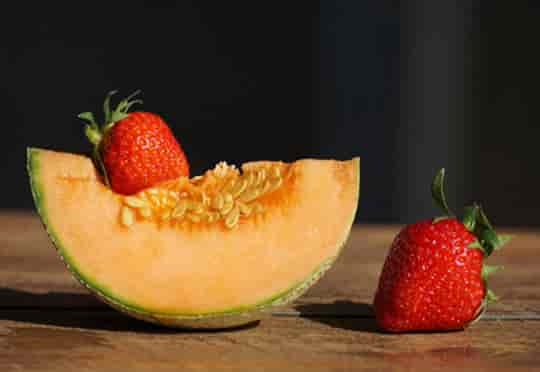![]() {{options.learnMore}} {{options.dismiss}}’, ”, ”, ” ], cookieName: ‘dilbert_cookieconsent_dismissed’, readystate: ‘interactive’ }; ]]> Episode 1390 Scott Adams: Is Critical Race Theory Marxist, How to Know Who is Projecting, Capitol Riot Commission, and More – Scott Adams’ Blog ]]>
{{options.learnMore}} {{options.dismiss}}’, ”, ”, ” ], cookieName: ‘dilbert_cookieconsent_dismissed’, readystate: ‘interactive’ }; ]]> Episode 1390 Scott Adams: Is Critical Race Theory Marxist, How to Know Who is Projecting, Capitol Riot Commission, and More – Scott Adams’ Blog ]]>
Keep reading here
Tag: Persuasion
2 Portions Of This Fish Prevents Type 2 Diabetes
This fish contains nutrients that can prevent type 2 diabetes and diminish heart disease risk.
Eating sardines at least twice a week can protect people with prediabetes against developing type 2 diabetes (T2D) and cardiovascular disease (CVD).
Oily fish, including sardines, are excellent sources of healthy fats called omega-3 fatty acids which reduce cholesterol levels and blood pressure.
On top of the protective effect against cardiovascular disease, consuming a diet rich in sardines help prevents T2D.
According to a study, sardines contain high quantities of nutrients such as taurine, vitamin D, calcium, fluorine, and omega 3 (EPA and DHA) that can stop or delay the development of T2D.
Taurine is a semi-essential amino acid, abundant in oily fish and has a hypoglycemic effect (lowers blood sugar).
Dr Diana Díaz-Rizzolo, the study’s first author, said:
“Not only are sardines reasonably priced and easy to find, but they are safe and help to prevent the onset of type 2 diabetes.
This is a huge scientific discovery.
It is easy to recommend this food during medical check-ups, and it is widely accepted by the population.”
Two portions of sardines
For this study, 152 adults with prediabetes (blood glucose levels between 100-124 mg/dl) followed a T2D-prevention nutritional program for a year.
They were divided into two groups with the same diet but only the sardine group had 200 grams of sardines every week (two cans of sardines in olive oil).
They were asked to consume sardines with bones and skin as these contain good amounts of calcium and vitamin D.
After one year, 22 percent of participants in the control group developed diabetes whereas only 8 percent in the sardines group remained extremely vulnerable to the disease.
The sardine group also had increased “good” cholesterol (HDL), reduced triglycerides, reduced blood pressure, decreased insulin resistance index and increased adiponectin (a protein hormone important for the breakdown of glucose and fat).
Dr Díaz-Rizzolo said:
“As we get older, restrictive diets (in terms of calories or food groups) can help to prevent the onset of diabetes.
However, the results lead us to believe that we could obtain an equally significant preventive effect in the younger population.”
Eating fish not taking supplements
Regularly eating sardines appears to have the protective effect against diabetes, but this is not true for dietary supplements.
Our body obtains taurine, omega-3, calcium, vitamin D and other nutrients from a healthy balanced diet that includes oily fish, but supplementation of these micronutrients won’t have the same effect.
Dr Díaz-Rizzolo explained:
“Nutrients can play an essential role in the prevention and treatment of many different pathologies, but their effect is usually caused by the synergy that exists between them and the food that they are contained in.
Sardines will therefore have a protective element because they are rich in the aforementioned nutrients, whereas nutrients taken in isolation in the form of supplements won’t work to the same extent.”
The study was published in the journal Clinical Nutrition (Díaz-Rizzolo et al., 2021).
New Hairstyles And Cosmetics Make People Unrecognisable
It is remarkably easy to disguise yourself, research finds.
Simple disguises, like a new hairstyle and makeup, are surprisingly effective at making people unrecognisable, research finds.
Makeup, hair style and colour and even facial hair growth or removal can make someone difficult to recognise.
For the study, models were recruited and told to try and change their appearance.
Hats and dark glasses were not allowed as these are prohibited in real-life security settings.
Here are some examples:

The results showed that disguises reduced people’s ability to spot the same person by 30%.
This was despite the fact that they were warned the target’s appearance may have changed.
Participants were only able to see through disguises when they knew the person well.
Dr Rob Jenkins, study’s co-author, said:
“We shouldn’t be complacent about deliberate disguise in criminal and security settings. When someone puts their mind to concealing their identity, it can be very effective.
Familiarity with the people who are disguising themselves improves accuracy.
When you are unfamiliar with a face you are easily fooled by superficial changes in hairstyle or colouration.
However, when you ‘know’ a face you tend to rely more on internal facial features — the eyes, nose and mouth — which are much harder to alter.”
The most effective form of disguise, the researchers found, was trying not to look like yourself.
This is known as an evasion disguise.
In comparison, impersonating someone else was not as effective.
Dr Eilidh Noyes, the study’s first author, said:
“With evasion disguise, you can change your appearance in any way you like.
With impersonation, you can only change your appearance in ways that resemble your target, so your options are much more constrained.
Deliberate disguise poses a real challenge to human face recognition.
The next step is to test automatic face recognition on the same tasks.”
The study was published in the Journal of Experimental Psychology: Applied (Noyes & Jenkins, 2019).
Episode 1391 Scott Adams: Nazis Infiltrate School Curriculum, Losing the Connection Between Work and Reward, Fentanyl War, More
![]() {{options.learnMore}} {{options.dismiss}}’, ”, ”, ” ], cookieName: ‘dilbert_cookieconsent_dismissed’, readystate: ‘interactive’ }; ]]> Episode 1391 Scott Adams: Nazis Infiltrate School Curriculum, Losing the Connection Between Work and Reward, Fentanyl War, More – Scott Adams’ Blog ]]>
{{options.learnMore}} {{options.dismiss}}’, ”, ”, ” ], cookieName: ‘dilbert_cookieconsent_dismissed’, readystate: ‘interactive’ }; ]]> Episode 1391 Scott Adams: Nazis Infiltrate School Curriculum, Losing the Connection Between Work and Reward, Fentanyl War, More – Scott Adams’ Blog ]]>
Keep reading here
Creatine: A Dietary Supplement That Boosts Your IQ
The dietary supplement creatine can improve both your memory and intelligence.
Creatine — a popular dietary supplement — boosts IQ and working memory, research finds.
Creatine is generally known as a supplement used by athletes for gaining muscle mass.
But that is not its only effect.
For the research vegetarians and vegans were given creatine supplementation.
Dr Caroline Rae, who led the study, explained the choice:
“Vegetarians or vegans were chosen for the study as carnivores and omnivores obtain a variable level of creatine depending on the amount and type of meat they eat – although to reach the level of supplementation in this experiment would involve eating around 2 kg of meat a day!”
Dr Rae said that creatine was a natural choice to test:
“We know that creatine plays a pivotal role in maintaining energy levels in the brain.
So it was a reasonable hypothesis that supplementing a diet with creatine could assist brain function.”
The creatine supplementation was tested over six weeks with participants taking 5g each day.
Dr Rae explained the results of the cognitive tests:
“Both of these tests require fast brain power and the Raven’s task was conducted under time pressure.
The results were clear with both our experimental groups and in both test scenarios: creatine supplementation gave a significant measurable boost to brain power.
For example in the digit span test subjects ability to remember long numbers, like telephone numbers, improved from a number length of about 7 to an average of 8.5 digits.
These findings underline a dynamic and significant role of brain energy capacity in influencing brain performance.
Increasing the energy available for computation increases the power of the brain and this is reflected directly in improved general ability.”
Olfactory disadvantage
Be aware, though, that long-term creatine supplementation has not been fully tested.
There are also certain olfactory disadvantages:
“To be frank taking the supplement can make you a considerably less ‘fragrant’ person.
However creatine supplementation may be of use to those requiring boosted mental performance in the short term – for example university students.”
The study was published in the journal Proceedings of the Royal Society: Biological Sciences (Rae et al., 2013).
Episode 1392 Scott Adams: Study Says Young Liberal Women Have Mental Problems, Translating CNN, and Experts Get Stuff Wrong
![]() {{options.learnMore}} {{options.dismiss}}’, ”, ”, ” ], cookieName: ‘dilbert_cookieconsent_dismissed’, readystate: ‘interactive’ }; ]]> Episode 1392 Scott Adams: Study Says Young Liberal Women Have Mental Problems, Translating CNN, and Experts Get Stuff Wrong – Scott Adams’ Blog ]]>
{{options.learnMore}} {{options.dismiss}}’, ”, ”, ” ], cookieName: ‘dilbert_cookieconsent_dismissed’, readystate: ‘interactive’ }; ]]> Episode 1392 Scott Adams: Study Says Young Liberal Women Have Mental Problems, Translating CNN, and Experts Get Stuff Wrong – Scott Adams’ Blog ]]>
Keep reading here
The Vitamin That Helps You Retain Muscle Mass
Foods rich in this vitamin will improve muscle mass and prevent age-related muscle loss.
People with the best muscle mass tend to get lots of vitamin C, a study reveals.
Vitamin C is found in vegetables like red bell pepper and broccoli, citrus fruits including oranges, berries, cantaloupe, melon, and kiwi.
Vitamin C is crucial for building muscle and maintaining it as we get older, particularly over the age of 50.
Losing skeletal muscle mass is typical in older people which often results in a condition called sarcopenia.
Sarcopenia or muscles wasting can even effect persons in their 30s and those who have an inactive life.
The symptoms are decline in muscle size and function, weakness, difficulty with movement, poor balance, and so poor quality of life.
Professor Ailsa Welch, the study’s lead author, said:
“As people age, they lose skeletal muscle mass and strength.
People over 50 lose up to one percent of their skeletal muscle mass each year, and this loss is thought to affect more than 50 million people worldwide.
It’s a big problem, because it can lead to frailty and other poor outcomes such as sarcopenia, physical disability, type-2 diabetes, reduced quality of life and death.
We know that Vitamin C consumption is linked with skeletal muscle mass.
It helps defend the cells and tissues that make up the body from potentially harmful free radical substances.
Unopposed these free radicals can contribute to the destruction of muscle, thus speeding up age-related decline.
But until now, few studies have investigated the importance of Vitamin C intake for older people.
We wanted to find out whether people eating more Vitamin C had more muscle mass than other people.”
Researchers analysed data on 13,000 adult aged between 42 and 82 who participated in the European Prospective Investigation into Cancer and Nutrition study.
Along with calculating the participants’ skeletal muscle mass, their blood vitamin C levels were tested and their vitamin C intake was estimated using a seven-day food record.
Dr Richard Hayhoe, study co-author, said:
“We studied a large sample of older Norfolk residents and found that people with the highest amounts of vitamin C in their diet or blood had the greatest estimated skeletal muscle mass, compared to those with the lowest amounts.
We are very excited by our findings as they suggest that dietary vitamin C is important for muscle health in older men and women and may be useful for preventing age-related muscle loss.
This is particularly significant as Vitamin C is readily available in fruits and vegetables, or supplements, so improving intake of this vitamin is relatively straightforward.
We found that nearly 60 percent of men and 50 percent of women participants were not consuming as much Vitamin C as they should, according to the European Food Safety Agency recommendations.
We’re not talking about people needing mega-doses.
Eating a citrus fruit, such as an orange, each day and having a vegetable side to a meal will be sufficient for most people.”
The study was published in Journal of Nutrition (Lewis et al., 2020).
Weight Loss: How To Escape The Exercise-More-Then-Eat-More Trap
Psychology study finds way out of exercise-more-then-eat-more trap.
A strange thing happen when people start exercising to lose weight.
Despite burning more calories, they frequently fail to shed the pounds.
One reason people give is that they start eating more.
It makes sense: you burn more calories, so you eat more, so you end up where you started, right?
Which leads to the question: why bother exercising for weight-loss?
The answer is: because it’s fun.
And in this one small word ‘fun’ may be a way out of this vicious circle of exercising more, then eating more.
It’s this thought that inspired Carolina Werle and colleagues to set up an experiment to test the effects on snacking of ‘doing exercise’ versus just ‘having fun’ (Werle et al., 2014).
To investigate, they asked 56 mostly overweight women to take a half-hour walk, after which they would be served lunch.
But there was a little trick to how this walk was framed:
- Half the women were told it was exercise and that they should monitor their exertion.
- Half were told they were just having fun and they should listen to music on their walk and enjoy themselves.
Afterwards, while relaxing and eating their lunch, and without knowing it, the women demonstrated what the difference was between ‘exercising’ and ‘having fun’.
Not only were women who’d been ‘having fun’ happier and less tired after their walk, but they also ate less pudding and drank less soda.
Overall, despite burning the same amount of calories while walking, women who’d been walking for pleasure ate less afterwards.
The reason for this difference seems to be in how framing exercise affects people’s search for rewards:
“Engaging in a physical activity seems to trigger the search for reward when individuals perceive it as exercise but not when they perceive it as fun.” (Werle et al., 2014).
So the best advice is: stop exercising and go out and have fun.
If you accidentally happen to do some exercise while enjoying yourself, so much the better!
.
Episode 1393 Scott Adams: The Public Revolt Against Mask Mandates Starts Now, Biden’s China Policy, Mike Flynn Controversy
![]() {{options.learnMore}} {{options.dismiss}}’, ”, ”, ” ], cookieName: ‘dilbert_cookieconsent_dismissed’, readystate: ‘interactive’ }; ]]> Episode 1393 Scott Adams: The Public Revolt Against Mask Mandates Starts Now, Biden’s China Policy, Mike Flynn Controversy – Scott Adams’ Blog ]]>
{{options.learnMore}} {{options.dismiss}}’, ”, ”, ” ], cookieName: ‘dilbert_cookieconsent_dismissed’, readystate: ‘interactive’ }; ]]> Episode 1393 Scott Adams: The Public Revolt Against Mask Mandates Starts Now, Biden’s China Policy, Mike Flynn Controversy – Scott Adams’ Blog ]]>
Keep reading here
Episode 1370 Scott Adams: Elon on SNL, CNN as a Narcissist, Climate Data Versus Headlines, and More
![]() {{options.learnMore}} {{options.dismiss}}’, ”, ”, ” ], cookieName: ‘dilbert_cookieconsent_dismissed’, readystate: ‘interactive’ }; ]]> Episode 1370 Scott Adams: Elon on SNL, CNN as a Narcissist, Climate Data Versus Headlines, and More – Scott Adams’ Blog ]]>
{{options.learnMore}} {{options.dismiss}}’, ”, ”, ” ], cookieName: ‘dilbert_cookieconsent_dismissed’, readystate: ‘interactive’ }; ]]> Episode 1370 Scott Adams: Elon on SNL, CNN as a Narcissist, Climate Data Versus Headlines, and More – Scott Adams’ Blog ]]>
Keep reading here









